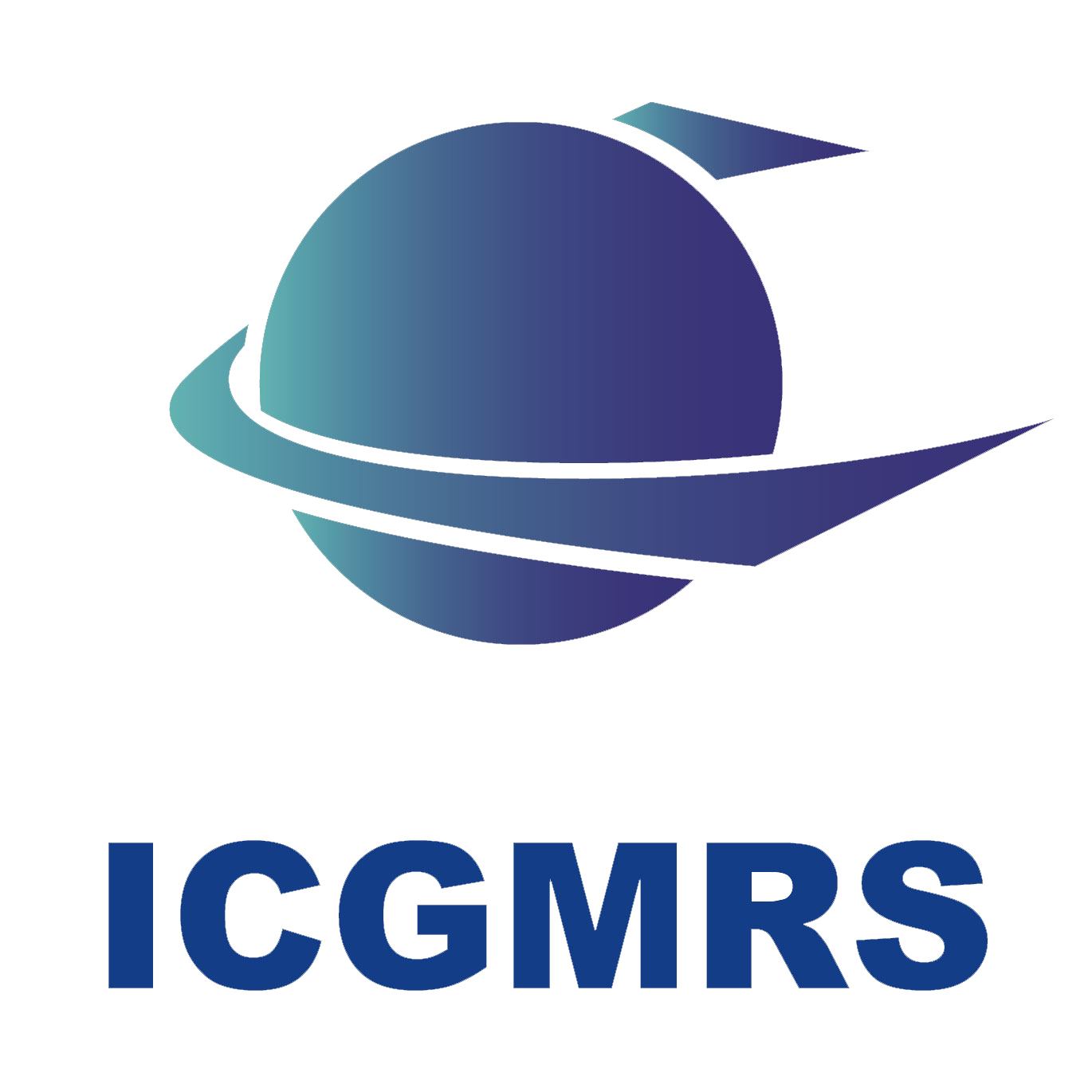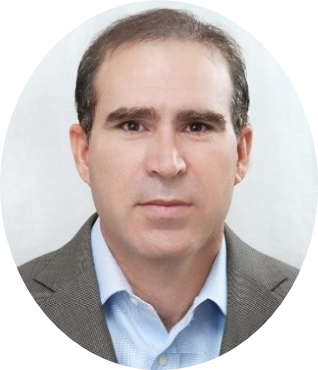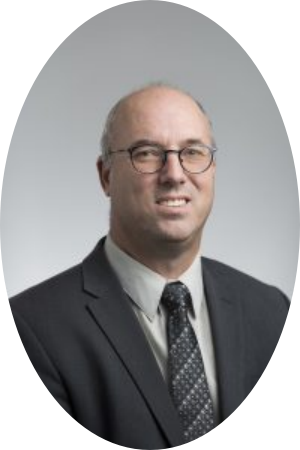
| Prof. Jeffrey Walker Monash University, Australia Australian Laureate Fellow, IEEE Fellow The Australian Research Magazine Top Researcher in Remote Sensing Biennial Medallist of the Modelling and Simulation Society of Australia and New Zealand Fellow of the Modelling and Simulation Society of Australia and New Zealand |
Jeffrey Walker is an Australian Research Council Laureate Professor in the Department of Civil Engineering at Monash University. He is undertaking research on soil moisture remote sensing and data assimilation, including development of the only Australian airborne capability for simulating new satellite missions for soil moisture. He is contributing to soil moisture satellite missions at both NASA and ESA, as a Science Definition Team member for the Soil Moisture Active Passive (SMAP) mission and Cal/val Team member for the Soil Moisture and Ocean Salinity (SMOS) mission respectively.
Professor Jeffrey Walker received his BEng(Civil) and BSurv degrees in 1996 with Hons 1 and University Medal from the University of Newcastle, Australia, and received his PhD in Water Resources Engineering from the same University in 2000. His PhD thesis was among the early pioneering research on estimation of root-zone soil moisture from remotely sensed surface soil moisture observations. He then joined NASA Goddard Space Flight Centre to implement his soil moisture work globally. In 2001 he moved to the Department of Civil and Environmental Engineering at the University of Melbourne as Lecturer, where he continued his soil moisture work, including development of the only Australian airborne capability for simulating new satellite missions for soil moisture. In 2010 he was appointed as Professor in the Department of Civil Engineering at Monash University where he is continuing this research.
His primary research ambition is to lead programs in socially relevant research that will have a positive impact on the way we take care of the environment so as to result in an improved quality of life both now and in the generations to come. He believes that the key to this is through improved earth system state and flux monitoring, prediction and reporting, in a way that is relevant to policy and decision making processes, flood and drought prediction and assessment, land and water management, national weather and climate forecasting, etc. His vision is that this goal will be realised through a combination of i) environmental sensing, ii) earth system modelling, and iii) optimal convergence of model predictions with observations through data assimilation. This is a new area of research that has gained wide spread interest over the past years.
 | Prof. Sen Jia Shenzhen University, China IEEE Senior Member Ministry of Education National Young Talent Guangdong Outstanding Young Teachers Training Program Associate Dean, School of Computer and Software, Shenzhen University Shenzhen High-level Talents and Shenzhen Nanshan District “Pilot Talents” Special Support Program for Cultivating High-level Talents in Guangdong Province |
Prof. Sen Jia, Distinguished Professor of Shenzhen University, Doctoral Supervisor, National Young Talent of Ministry of Education. He is mainly engaged in the research and development of artificial intelligence, machine learning and remote sensing information processing. He has presided over four National Natural Science Foundation of China projects and several provincial and ministerial projects, and has published more than 100 scientific papers, including more than 40 papers in international authoritative journals, such as IEEE TGRS, IEEE TNNLS, ISPRS, etc. He has been selected as a member of the “Special Support Program of Guangdong” and the “Outstanding Young Teachers Training Program of Guangdong Province”, and has been selected as a member of the “Outstanding Young Teachers Training Program of Guangdong Province”. He has been selected for the “Guangdong Special Support Program” and “Guangdong Outstanding Young Teachers Cultivation Program”, and selected as one of the Shenzhen High-level Talents and Shenzhen Nanshan District “Pilot Talents”. He has been awarded the Second Prize of Natural Science in Guangdong Province (ranked first), and the Second Prize of Natural Science in Shenzhen City (ranked second), and has been a senior member of IEEE. He is a senior member of IEEE, and serves as an editorial board member of IEEE TGRS, an international authoritative journal in remote sensing (Associate Editor, IF=8.13, CAS Region I); he has been awarded 16 invention patents (including 6 domestic invention patents, 2 U.S. patents, and 8 international invention patents under PCT).
 | Prof. Yaoping Cui Henan University, China Henan Province Excellent Youth Fund A Recipient of the Central Plains Youth Award Vice Dean of International School of Technology of Henan University Head of the Scientific and Technological Innovation Team in Henan Province's Universities |
Yaoping Cui, professor and doctoral supervisor at Henan University. He is the head of the scientific and technological innovation team in Henan Province's universities, a recipient of the Central Plains Youth Award, and the Henan Province Excellent Youth Fund. He is currently the vice dean of International School of Technology of Henan University, the deputy director of the Key Laboratory of Digital Geography Technology in the Middle and Lower Reaches of the Yellow River of the Ministry of Education. Mainly engaged in research on remote sensing big data and cloud computing, land use change and its ecological and climate effects. Currently published over a hundred academic papers; Hosted over 20 projects funded by the National Natural Science Foundation, national key research and development projects, and key scientific and technological breakthroughs of Henan Province etc.; Relevant decision-making consultation suggestions have been approved by national and provincial leaders; He has won the Innovation Award of China Invention Association and the Development Research Award of Henan Province. Internationally, He has served as a reviewer for more than 20 journals such as Applied Geography, Remote Sensing of Environment, and as a young editorial board member for journals such as Carbon Research.
 | Prof. Jie Chen Central South University, China IEEE Member, CCF Member An Innovative Figure in GIS Youth Scientist in Global Cutting-Edge Technology Secretary of the Party branch for the Department of Geographic Information at the School of Geospatial Information |
Jie Chen, Ph.D., is a professor, doctoral supervisor, and secretary of the Party branch for the Department of Geographic Information at the School of Geospatial Information. His focus research is the intelligent discovery of geographic knowledge driven by remote sensing big data. He has been recognized as a Youth Scientist in Global Cutting-Edge Technology by the World Geospatial Developers Conference (WGDC) and an Innovative Figure in GIS. Besides, he has received multiple awards, including one Second Prize for Technological Progress in Natural Resources, three Second Prizes for Technological Progress in Geographic Information Science, one First Prize for Technological Progress in Geographic Information Science in Hunan Province, and one Second Prize in Surveying Science and Technology in Hunan Province. He has also won two “Excellent Teaching Achievement” awards at the GIS Forum. Prof. Chen is a member of IEEE, CCF, and CSIG, and serves as a committee member for the Intelligent Surveying Working Committee of the Chinese Society for Geodesy Photogrammetry and Cartography, a committee member of the Remote Sensing Image Committee of the China Society of Image and Graphics, and a youth committee member of the Hunan Association for Artificial Intelligence. He has been honored as an excellent editorial board member for the journal Remote Sensing and serves as a reviewer for several authoritative and important academic journals both domestically and internationally, such as the ISPRS Journal, Science Advances, IEEE TGRS, IEEE JSTARS, JAG, GIScience & Remote Sensing, Transactions in GIS, National Remote Sensing Bulletin, Acta Geodaetica et Cartographica Sinica, Geomatics and Information Science of Wuhan University, and Journal of Hunan University(Natural Sciences).
 | Prof. Yuan Wang Nanjing University of Information Science & Technology, China The "Li Xiaowen Remote Sensing Science Youth Award" (5 people selected every 2 years nationwide) "MDPI Remote Sensing Best PhD Thesis Award" (1 person selected every year worldwide) "China Excellent Doctoral Dissertation Award of the AERSS" (5 people selected every year nationwide) Multiple SCI publications in journals such as Nature subseries, ESSD and ISPRS |
Prof. Yuan Wang, School of Atmospheric Physics, Nanjing University of Information Science and Technology. At present, he has presided over or participated in multiple national and provincial projects, and published more than 30 academic papers; As the first/corresponding author, he has published more than 10 papers in SCI journals (e.g., Nat. Commun., Earth Syst. Sci. Data, ISPRS J. Photogramm., etc.), including 9 TOP papers in the CAS District 1st and 3 papers in the CAS District 2nd, with 5 papers of IF > 10; His global research on ozone health risks was reported by the "NSFC Center for Science Communication and Achievement Transformation" and "Lancet Planetary Health"; His 1 paper was selected as the ESI hot paper and 3 papers were selected as ESI highly cited papers; He has won more than 10 awards and honors, such as the "Li Xiaowen Remote Sensing Science Youth Award" (5 people selected every 2 years nationwide), "MDPI Remote Sensing Best PhD Thesis Award" (1 person selected every year worldwide), and "China Excellent Doctoral Dissertation Award of the AERSS" (5 people selected every year nationwide); He was the session convenor of the AERSS Annual Meeting (2024) and session chair of the IEEE International Geoscience and Remote Sensing Symposium (2019).
 | Assoc. Prof. Faming Huang Nanchang University, China Principal Investigator of the National Natural Science Foundation General Program Principal Investigator of Jiangxi "Double Thousand Plan" Youth Elite Project Recognized with consecutive inclusions in Stanford University's World's Top 2% Scientists list (2022-2024) Highly Cited Scholars ( TOP 1 % ) from China National Knowledge Infrastructure (2024) |
Dr. HUANG Faming is currently an Associate Professor and Doctoral Supervisor at Nanchang University, specializing in intelligent risk assessment of hydraulic geotechnical disasters. He has pioneered an intelligent early-warning system by integrating space-air-ground multisource sensing technologies with machine learning algorithms. As Principal Investigator, he has led multiple national research projects including the National Natural Science Foundation General Program, Jiangxi "Double Thousand Plan" Youth Elite Project. His academic excellence has been globally recognized with consecutive inclusions in Stanford University's World's Top 2% Scientists list (2022-2024) and selection as a CNKI Top 1% Highly Cited Scholar (2024). He is also a recipient of the Jiangxi Outstanding Youth Science Fund. Actively engaged in academic community services, Dr. Huang serves as Standing Committee Member of the AI Application Committee at the Chinese Society for Rock Mechanics & Engineering, while holding editorial positions for prestigious journals including Associate Editor of Frontiers in Earth Science (SCI Q4), Scientific Editors of Journal of Rock Mechanics and Geotechnical Engineering (SCI Q1) and Journal of Earth Science (SCI Q1), and Deputy Editor-in-Chief of Bulletin of Geological Science & Technology (CSCD Core), demonstrating sustained commitment to interdisciplinary innovation and scholarly communication.
 | Assoc. Prof. Alireza Rashki Ferdowsi University of Mashhad, Iran Top Researcher at Ferdowsi University in 2019 H-index of 27 (based on Web of Science and Scopus) and over 3,000 citations Developer and lecturer of an International MSc Educational Program in Environmental Management and Modelling (GeoNetC) funded by Erasmus+ (European Commission) (2017-2019) |
Dr. Alireza Rashki is an accomplished associate professor at Ferdowsi University of Mashhad (Iran), specializing in atmospheric sciences, air pollution, and environmental dynamics,Environmental Remote Sensing, with a particular focus on air pollution (aerosol/dust) research. His work explores the sources, transport mechanisms, and impacts of airborne particulate matter, including natural phenomena like dust storms, which are prevalent in arid regions such as the Middle East and Central Asia. Utilizing advanced methodologies such as remote sensing, satellite data analysis, and atmospheric modeling, Dr. Rashki investigates how aerosols influence air quality, climate systems, and public health. His research holds significant regional relevance, addressing environmental challenges in Iran and neighboring areas, where dust emissions exacerbate pollution levels. His published research underscores the intersection of natural aerosol processes and anthropogenic pollution, offering insights crucial for informing regulatory frameworks and health advisories. He was recognized as a Top Researcher at Ferdowsi University in 2019. With over two decades of experience, he has built an impressive international publication record, including more than 100 peer-reviewed articles. His research impact is reflected in an H-index of 27 (based on Web of Science and Scopus) and over 3,000 citations. Additionally, he serves as an editorial board member for three academic journals.
 | Assoc. Prof. Yi Chang Huazhong University of Science and Technology, China The List of the World's Top 2% of Scientists The Hubei Provincial Distinguished Young Scholar Award The Wuhan Talent Program A Distinguished Young Scholar from Huazhong |
Yi Chang is an associate professor in the School of Artificial Intelligence and Automation/Key Laboratory of Multi-Spectral Information Processing Technology at Huazhong University of Science and Technology and a distinguished young scholar from Huazhong. He focuses on fundamental research in intelligent imaging enhancement, addressing significant application needs for reconnaissance and strike capabilities. Assoc. Prof. Chang has participated in various research projects, including those funded by the National Natural Science Foundation of China, key programs, key projects of the equipment development department, subprojects of the Ministry of Science and Technology's key R&D program, and collaborative projects with Huawei HiSilicon in basic research. His accomplishment has been applied to satellite, missile, and airborne optical-electronic equipment. As the first or corresponding author, Assoc. Prof. Chang has published over 30 academic papers in journals and conferences such as TPAM, CVPR, and ICCV, with over 3,300 citations according to Google Scholar. Furthermore, he holds more than 20 authorized or filed invention patents., Assoc. Prof. Chang has guided students to win the CVPR International Competition three times. He has been recognized on the list of the world's top 2% of scientists, as well as being honored with the Hubei Provincial Distinguished Young Scholar Award, the Boxin Program, the Wuhan Talent Program, the Xiaomi Young Scholar Award, etc.
 | Dr. Shiqing Wei China University of Petroleum (East China), China A Recipient of the National Funded Postdoctoral Research Program Category, Class B One Science and Technology Progress Award from Guizhou Province Two Science and Technology Progress Awards in Geographic Information Two Science and Technology Awards from the Chinese Society for Geodesy Photogrammetry and Cartography Research Area: Intelligent Interpretation of Remote Sensing Images and Computer Vision |
Shiqing Wei, graduated from Wuhan University, is a lecturer at the College of Marine and Spatial Information in China University of Petroleum (East China) and a recipient of the National Funded Postdoctoral Research Program Category, Class B. Wei has long been engaged in research related to intelligent interpretation of remote sensing images and computer vision. He has published over ten SCI papers in internationally renowned journals such as ISPRS Journal and IEEE Transactions on Geoscience and Remote Sensing, with four papers selected as ESI highly cited papers. Furthermore, Wei has led one national-level and one provincial-level natural science fund project each. He has also received one Science and Technology Progress Award from Guizhou Province, two Science and Technology Progress Awards in Geographic Information, and two Science and Technology Awards from the Chinese Society for Geodesy Photogrammetry and Cartography.
 | Dr. Yabin Hu First Institute of Oceanography, MNR, China Published more than 30 academic papers Presided over or Participated in more than 10 Projects of the National Natural Science Foundation of China (NSFC), the National Key Research and Development Program (NKRDP), and the High Score Special Project (HSSP). Research Area: Remote Sensing of Coastal Wetlands and the Remote Sensing Technology and Application Research of Typical Marine Ecosystems |
Yabin Hu, assistant researcher at the First Institute of Oceanography, Ministry of Natural Resources, focuses on remote sensing of coastal wetlands and the remote sensing technology and application research of typical marine ecosystems. He has participated in over 10 projects, including those funded by the National Natural Science Foundation, the National Key Research and Development Program, and the High-Resolution Earth Observation System. He has published more than 30 academic papers. Regarding remote sensing research on coastal wetlands, Hu is committed to the study of intelligent classification algorithms for remote sensing of coastal wetlands and the spatiotemporal succession of typical land covers. In terms of remote sensing technology and application research for typical marine ecosystems, he focuses on intelligent classification algorithms for coral reef geomorphology or bottom substrates, as well as monitoring and safety assessment of coral reef ecosystems.
 | Dr. Fangming Guo China University of Petroleum (East China), China Published Over Ten Papers in Academic Journals such as TGRS and JAG, and Granted Two Invention Patents Participated in six research projects, including the National Key Research and Development Program, the Chinese Academy of Sciences (CAS) Class A Pilot Program, and the National Natural Science Foundation Research Area: Intelligent Processing of Remote Sensing Information and Multi-Source Remote Sensing Monitoring of Coastal Wetlands |
Fangming Guo is a postdoctoral researcher and assistant researcher at China University of Petroleum (East China). Guo focuses on intelligent processing of remote sensing information and multi-source remote sensing monitoring of coastal wetlands. In the past five years, he has published over ten papers in academic journals such as TGRS and JAG, and has been granted two invention patents. He has participated in six research projects, including the National Key Research and Development Program, the Chinese Academy of Sciences (CAS) Class A Pilot Program, and the National Natural Science Foundation. Additionally, Guo serves as a reviewer for international journals such as TGRS, JAG, JSTARS, and GRSL.
